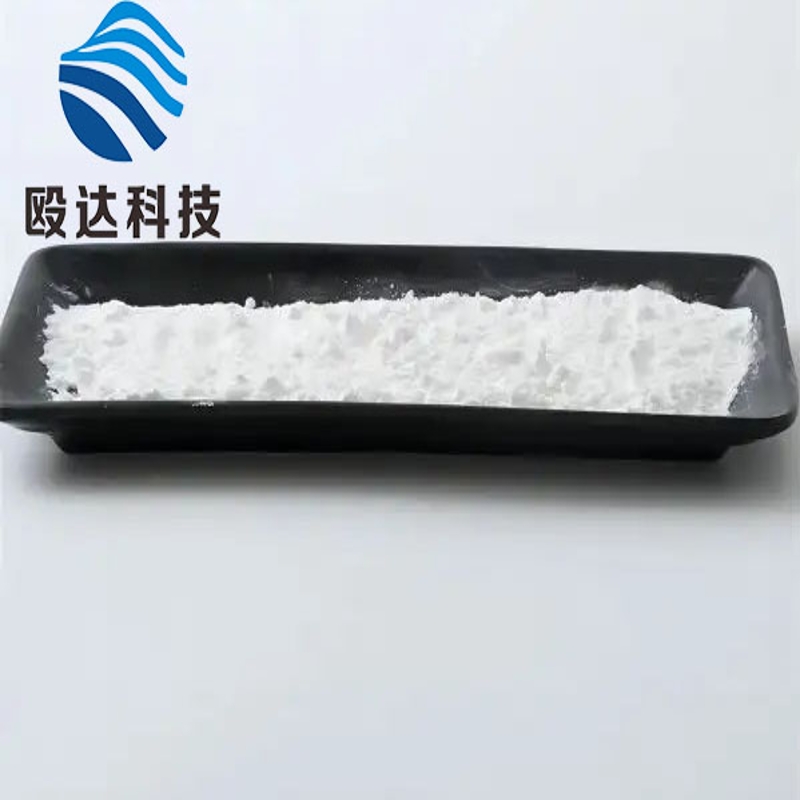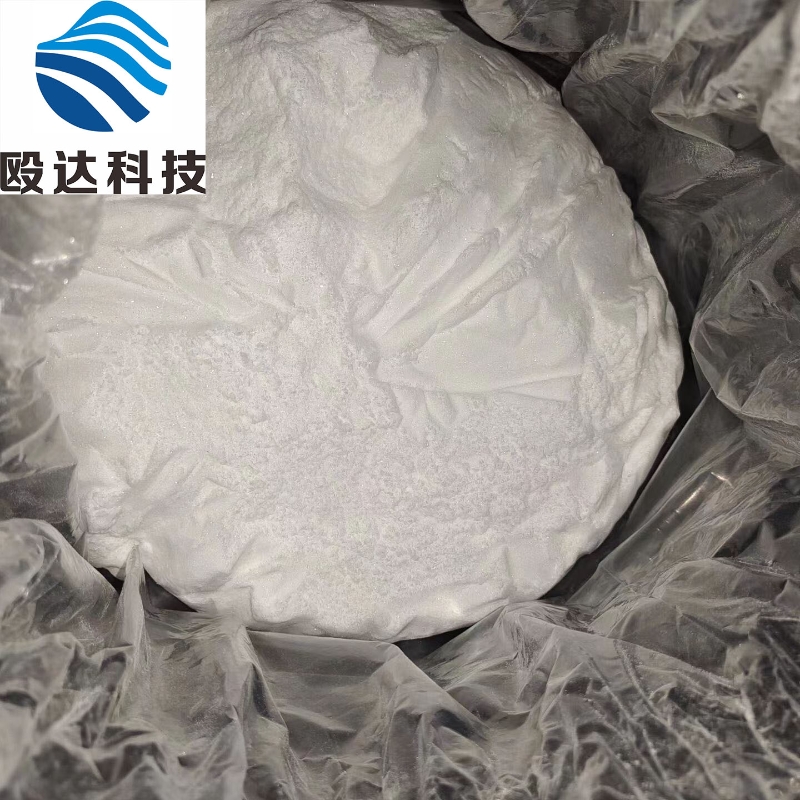-
Categories
-
Pharmaceutical Intermediates
-
Active Pharmaceutical Ingredients
-
Food Additives
- Industrial Coatings
- Agrochemicals
- Dyes and Pigments
- Surfactant
- Flavors and Fragrances
- Chemical Reagents
- Catalyst and Auxiliary
- Natural Products
- Inorganic Chemistry
-
Organic Chemistry
-
Biochemical Engineering
- Analytical Chemistry
- Cosmetic Ingredient
-
Pharmaceutical Intermediates
Promotion
ECHEMI Mall
Wholesale
Weekly Price
Exhibition
News
-
Trade Service
!-- webeditor:page title"--August 06, 2020 // -- Boehringer Ingelheim recently released new analysis data for phase III of the INBUILD trial.
the trial evaluated Ofev (Chinese: Vegat, generic name: nintedanib, Nidanibu) for the treatment of chronic fibrosis-intersophysiological pulmonary disease (PF-ILD) with an aggressive physiology.
results showed that the proportion of patients with a 10 per cent or more decline in lung function in the Ofev group was significantly lower than in the placebo group during the 52-week treatment period.
A separate data analysis confirmed Ofev's consistent role in reducing the annual rate of decline in force lung capacity (FVC) in patients with chronic fibrous ILD, regardless of demographic characteristics, lung function, or ILD diagnosis.
the results were published online at a recent virtual meeting of the American Thoracic Technology Association (ATS).
Ofev is a multi-target tyrosine kinase inhibitor that inhibits key pathogenic paths involved in pulmonary fibrosis in intersolutal pulmonary disease (ILD).
To date, Ofev has been approved for three conditions: (1) for the treatment of adrenal pulmonary fibrosis (IPF);(2) for the treatment of systemic sclerosis-related intersogeneration lung disease (SSc-ILD) ;(3) for the treatment of other chronic fibrosis-mediated pulmonary disease (PF-ILD) with advanced physiology other than IPF.
Ofev is the only treatment that slows down lung function in patients with SC-ILD and the only approved treatment for PF-ILD.
, Ofev has been approved to treat IPF and SSc-ILD, and applications for treatment of PF-ILD were accepted by the State Drug Administration late last year. Dr Thomas Leonard, Executive Director of Clinical Development and Medical Affairs for Professional Nursing IPF/ILD in Blingeringer,
, said: "We are encouraged by these findings in connection with the decline in lung function in patients with Ofev's progressional chronic fibrous ILD (PF-ILD), and these new results help support the growing scientific evidence for the use of Ofev.
, Ofev was approved by the European Union to treat PF-ILD.
the approval is based on the results of the Phase III INBUILD study, the first clinical study to reach a major endpoint in the IIL patient population.
The study, a randomized, double-blind, placebo-controlled, parallel group study conducted in 153 clinical centers in 15 countries, assessed the efficacy, safety and tolerability of Ofev (150mg, 2 times a day) for 52 weeks of treatment in PF-ILD patients.
the study, 663 patients were evaluated, of which 412 (62.1%) showed a change in intersex pneumonia (UIP) on high-resolution computer fault scanning (HRCT).
patients were randomly grouped according to the fibrosis pattern detected by HRCT, and lung function was assessed by the annual rate of decline in force lung capacity (FVC).
results showed a 188 ml decrease in FVC in the placebo group and an 81 ml decrease in FVC in the Ofev group after 52 weeks of treatment.
this means that Ofev slowed lung function by 57% (107ml/year) compared to placebos.
the study, Ofev's treatment effect of slowing down lung function was consistent across all patients, regardless of fibrosis patterns on HRCT, and consistent with Ofev's trial results for IF and SSC-ILD patients.
specifically, in patients with UIST-like fibrosis shown on HRCT, the results showed that Ofev treatment slowed lung function by 61% (128.2 ml/year) compared to placebo.
study, Ofev was associated with a reduced risk of acute exacerbation or death compared to placebos.
treatment benefits are accompanied by a decrease in patients reporting worsening results, such as breathing difficulties and coughing.
the safety observed in the study was consistent with that of IF and SSC-ILD clinical trials, with the most common adverse events being diarrhea, with 66.9% incidence in the Ofev treatment group and 23.9% in the placebo group, respectively.
analysis presented at the ATS conference by THED (Photo source: pulmonaryfibrosisnews.com) showed a lower proportion of patients with a 10 per cent or more decline in lung function in the Ofev group compared to the placebo group.
analysis is based on baseline checks and a 5 percent and 10 percent change in the FVC decline forecast between 52 weeks.
FVC is a recognized method of measuring lung function, and the decline of FVC is an indicator of disease progression.
that Ofev slowed the decline in lung function (projected FVC percentage) compared to placebos.
at 52 weeks, Ofev reduced the absolute proportion of patients with FVC by 5% compared to placebos (43.4% vs 55%), and the proportion of patients with absolute decrease in FVC by 10% (28.3% vs 36.6%).
In a separate pre-designated analysis, the rate of decline in FVC (ml/year) was assessed over a 52-week basis based on the following baseline characteristics, including: gender, age (lt;65, .65), race (white, Asian, black/African-American), FVC (predicted at 70%, .70%), ILD diagnosis (allergic pneumonia, autoimmune ILD, aplastic nonsealtic intersex pneumonia (iNSIP), indiscessible anaesthetic intersex pneumonia (IIP), other ILDs).
analysis showed that Ofev reduced the annual rate of FVC decline in patients with chronic fibrosis ILD compared to placebos, independent of baseline demographic characteristics, lung function, or ILD diagnosis.
Martin Kolb, M.D., professor of respiratory medicine at McMaster University medical school in Hamilton, Ontario, said: "These results support Ofev's therapeutic role in patients with chronic fibrous ILD with different demographic characteristics, lung function or clinical diagnosis, and progression of the disease.
" mesoplasm lung disease (ILD) includes more than 200 diseases that can cause pulmonary fibrosis, an irreversible scar on lung tissue that has a negative impact on lung function.
ILD patients can develop an aggressive physio type (PF-ILD) that causes pulmonary fibrosis, resulting in decreased lung function, reduced quality of life, and early death similar to the most common characteristic intersex pneumonia, a characteristic pulmonary fibrosis (IPF).
regardless of the underlying disease, the course and symptoms are similar in PF-ILD.
it is estimated that up to 18-32% of non-IPF ILD patients are at risk of developing ldYDs for developing PF-ILD.
/!--/ewebeditor:page-!--ewebeditor:page title"--indigricable ILD, autoimmune ILD, chronic hypersensitivity pneumonia, no onslology, muscle The specific types of inflammation, dry syndrome, coal dust lungs, and intersex pneumonia (e.g. agensitive nonsealtic intersex pneumonia) are diseases that may develop into aggressive diastosis chronic fibrous ILD (PF-ILD).
source: New Analyses of Ofev® data in patients with chronic fibrosing ILDs American Available Thoracic Society Congress !--/ewebeditor:page.







